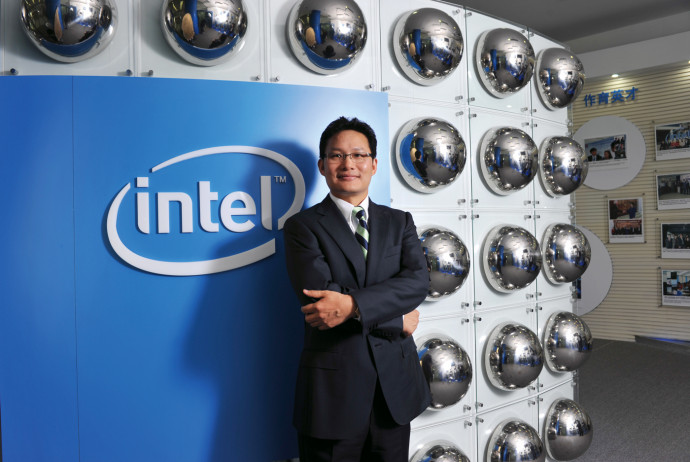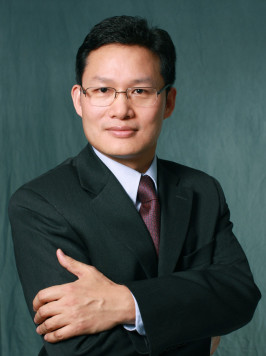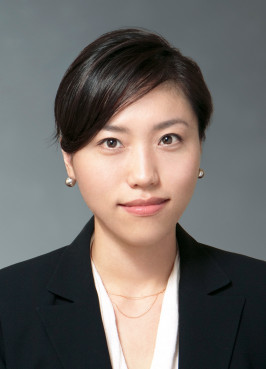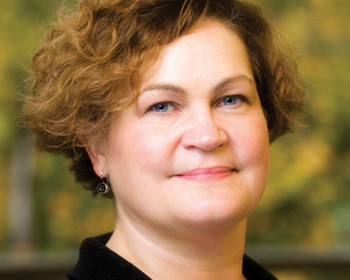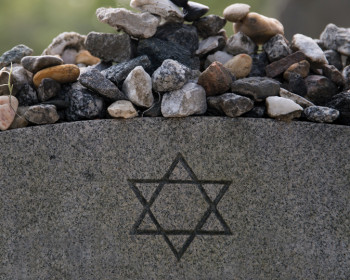Making a Difference Around the World: Four Law School Alumni Follow Their Passion
By Melody Finnemore
Around the world, Lewis & Clark Law School alumni are changing the face of the planet as leaders in law, legal education, and business.
In China, Jun Ge oversees Intel’s business development, legal policy, social responsibility, and educational programs. In South Korea, Siwon Park helped establish the Global Green Growth Institute and advises its leaders about legal issues and international negotiations related to climate change. A world away in Washington, D.C., Phil Schiliro serves as special advisor to President Barack Obama. And in Australia, Dana Campbell is chief executive officer of an organization committed to protecting animals.
Ge, Park, Schiliro, and Campbell specialize in vastly different types of law and work in vastly different environments from one another. Each had his or her own reason for wanting to become an attorney. What they have in common, however, is the desire to somehow help make the world a better place. Like many of the Law School’s graduates, they are using their education, personal experience, and professional expertise to make a global impact.
“Around the world, Lewis & Clark Law School alumni are changing the face of the planet as leaders in law, legal education, and business,” says Law School Dean Robert Klonoff.
Jun Ge ’95
Born in Suzhou, China, in 1965, Jun Ge considers himself extremely fortunate that the cultural revolution ended when he was young, and that he was able to attend school and receive a formal education. He’s worked hard to make the most of his luck.
Jun says he initially intended to become a famous journalist. He did well in high school and his teacher encouraged him to write articles and participate in national writing competitions. He received a couple of top awards and several of his articles were published in Chinese newspapers.
During his college entrance exam, however, he missed two significant essay questions. That put him out of the running for the college where he had hoped to study journalism. “I ended up attending a law school in Shanghai, which was not among my top ten choices,” Jun says. “Back in 1982, studying law in China was very rare as China had just started to rebuild its legal system. [Law students] earned an undergraduate degree.”
After graduating from the East China Law School and passing the bar exam, Jun worked as a private practice attorney and corporate counsel, primarily focusing on foreign direct investment, corporate financing, and international trade. He eventually left the legal field to lead the business management department of a large company based in Shenzhen.
[His application] was one of the most organized and detailed I’ve ever seen. I can still picture it today. We admitted him sight unseen.
Professor Steve Kanter
During these years, Jun received legal newsletters and magazines sent by a Seattle attorney who had been one of his professors at the East China Law School. In 1992, after reading about Lewis & Clark Law School in one of the publications, Jun applied to the school so he could earn a second law degree in the United States.
Jun’s application made a profound impression. “[It] was one of the most organized and detailed I’ve ever seen. I can still picture it today,” says Professor Steve Kanter, who was dean of the Law School at the time. “We admitted him sight unseen.” (Ge, who has continued to stay in touch with his mentor over the years, still has the acceptance letter Kanter sent him. Kanter and his family visited with Jun in Shanghai last October and in Beijing earlier this year.)
It turned out that getting accepted into the Law School was the easy part for Jun. He faced significant hurdles just getting to the United States and had to defer enrollment for a year. Once he arrived, culture shock and the rigors of the coursework took their toll.
“For the first five or six months, I was almost crazy,” Jun says. “Aside from the challenges of living and adapting to life (learning to drive and getting a driver’s license, finding the Chinese grocery stores for food, vegetables, and spices I like), I could not read fast enough to finish the reading assignments, I could not understand most of the cases, and I could not understand the values and histories that were embedded in those landmark cases.”
The majority of Jun’s classmates knew how to use an Apple or IBM, while he could use only a typewriter. He says persistence—and many 16-hour days of studying—helped him through those tough times.
“At the end of the first year, I did very well on my exams,” Jun says. “I was in the top third and I received the Best Oralist award for the moot court competition. I was also the first student using a laptop computer in my class!”
Jun continued to do well through his second and third years. When he graduated, he took Washington State’s bar exam because he felt it was among the most challenging; he still keeps his bar status active there.
In 1996, Jun returned to Asia to work for Intel. He worked at the company’s Asia Pacific regional headquarters in Hong Kong for eight years before moving to its Shanghai location in 2003. Today, Jun serves as the company’s head of legal and corporate affairs and is managing director of its operations in China. He deals with commercial, investment, trade, antitrust, consumer protection, and intellectual property law.
“I have to understand all aspects of the laws that would enable us to do business well in China,” he says. Jun’s work also encompasses public affairs, regional government affairs, corporate social responsibility, and educational programs. He is a member of Intel China’s executive council and several economic and social development organizations. Jun also is a frequent speaker on innovation, business practices in China, intellectual property, and issues related to the World Trade Organization.
“You can never sit back and assume that you know the law, because it is changing, converging, and diverging,” he says. “Working for a multinational company like Intel, we are always at the cutting edge and we have the complexity of dealing with very different legal systems. To stay abreast of all of those developments in such varying legal environments demands professionalism, diligence, and a strong sense of responsibility.”
When Jun started with Intel, he was one of two attorneys in its legal department in Asia. The company now has a team of 50 lawyers and legal professionals there, and employs more than 8,000 people in China.
Jun, the father of an 11-year-old daughter, says he feels particularly fortunate to be part of a company that has become such an important presence in his homeland.
“As I see Intel growing to become the most prominent foreign investment enterprise in China, as I see Intel being considered a trusted advisor of the Chinese government and ICT industry, as I see Intel’s legal team serving as the benchmark of other multinational companies operating in China, and as I see myself being instrumental in this entire process, I feel I am sufficiently rewarded.”
“He has more than fulfilled the promise that was evident in his application,” reflects Kantor. “[Ge] has the utmost integrity, and is one of the most highly professional and effective lawyers and business leaders that I have the pleasure to count among my former students.”
Siwon Park ’06
Siwon Park was born in Gwangju, a city in southwestern South Korea that Park describes as famous for its good food and thick southern accent. Her father, a member of Korea’s national assembly for eight years, was a career politician whose work carried the family to Seoul when Park was 10 years old.
Park decided to become an attorney after learning about the concept of sustainable development while studying international relations during graduate school.
“I was fascinated by the idea, the vision,” she says. “I believed that sustainable development, the harmony between economic need and the environment, would be the key agenda for the national strategy of a country like Korea, which achieved economic growth with industrialization for a short period of time.”
Park wanted to learn more about environmental policy, how the environment plays a role in national planning, and transnational environmental problems. But in the early 2000s, these topics were relatively unheard of in South Korea and information was difficult to find.
“I decided to go abroad and study environmental laws,” she says. “Studying law was a practical choice since it was a more familiar field of study for a student with a social science background. I also thought that becoming a lawyer in the U.S. would be a good idea since I wanted to work in the international, transnational setting in the future.”
It turns out that Google helped Park decide where to attend law school. She keyed in the words “environmental law program” and learned that Lewis & Clark Law School held the top ranking in the United States. Park says that even though she didn’t know anything about Portland or Oregon, the information made her choice an easy one.
“In my senior year of college, I did a study-abroad program at the University of North Carolina in Chapel Hill, and I had an internship in Washington, D.C., during my graduate program. So I had a little experience with the East Coast and the South. I thought that it would be interesting to go explore another part of the country,” she adds.
Park admits the adjustment to law school was tough at first. She spoke limited English when she arrived five days before the start of her first semester, and she quickly discovered she had her work cut out for her. Not only were her classes a challenge, but sometimes understanding various American accents was, too.
I feel that I am a pathfinder or pioneer of my career in Korea.
“In my first semester I had Professor [Donald] Large for my property class. He was great, very entertaining, except I could not understand most of his stories and anecdotes related to cases we were discussing, because he had a very flat and fast New York accent,” Park explains. “When other students laughed and enjoyed his lecture, I was in horror because I couldn’t understand what was going on. I was worried about the final exam for the entire semester. I ended the class with a B, so I was happy.”
Once her apprehension began to fade, Park says, she started to explore the many opportunities the Law School offered. She clerked at the Bonneville Power Administration for a year and a half. She was a member of the International Environmental Law Program (IELP) under the leadership of Professor Chris Wold. Park also had an externship at the Center for International Environmental Law (CIEL), based in Washington, D.C., for a semester.
“They all were great experiences. However, the more activities I explored, the lower my GPA got. After all, it is true that fear and tension enhances academic performance,” Park says with a smile.
Shortly after graduating, Park moved to New York City and took New York’s bar exam, figuring that the Big Apple might hold more opportunities than Oregon for foreigners. She didn’t know anyone there and found it difficult to find a job in environmental law, particularly since she needed an employer who was willing to sponsor her work visa.
After several months of job hunting, Park received an offer to work as a contract attorney for a large firm that handled international litigation and represented a substantial Korean company. In that role, Park helped during the discovery process, sorted out litigation materials, and translated documents.
“The work itself was not so thrilling, but it turned out to be a great experience,” she says. “The firm sent some of its contract attorneys, including me, to a London office to continue the discovery process.”
Park says the opportunity to live and work in London for three months was amazing, despite the long hours during the weekdays. “At night and during the weekends, I got to explore the city and the country and met great people. I really enjoyed London.”
Park returned to New York to start a new position at a boutique immigration office in Manhattan. Within two years, business was booming. Her clientele grew through the many referrals she received, and she enjoyed the people she met—artists, musicians, medical doctors, and professors from around the world she helped obtain work visas and permanent residency.
Still, Park knew she wanted to work as an environmental lawyer. She learned about an opening at the Korean Environment Institute (KEI), a national research institute that specialized in environmental research in Seoul. In 2009, she returned to Korea.
“It was not an easy decision to leave the U.S. after six years and to leave the (Manhattan) law practice. But I knew that it was the right time and the right opportunity,” she says.
As a legal researcher in international environmental law, Park is particularly interested in climate change because it is a complex topic with international ramifications—not merely a legal issue, but one of the biggest global challenges humanity faces. She finds it intriguing to observe how individual countries attempt to address the challenge through the legal framework of regulations and institution building.
“It is also interesting to learn how the international community tries to work together or fails to do so to address the challenge. It is a difficult task; that’s why it is worthwhile to learn,” Park notes.
At KEI, her research involved following climate change–related legal issues and international negotiations. Park assisted the Korean delegation to the U.N. Climate Change meetings, helping shape government agendas and drafting negotiation documents. She also monitored and studied greenhouse gas regulations and legislation in various countries. In 2009, she joined the Korean delegation in negotiation meetings that included the Copenhagen Summit. Last year she was part of the Conference of Parties of the U.N. Framework Convention on Climate Change in Cancun, Mexico.
During the Copenhagen Climate Summit, Korean President Lee Myung Bak announced that his country planned to launch a global think tank on climate change to help developing countries’ green growth effort. Park was part of the task force that created the institute, which opened in 2010 as the Global Green Growth Institute (GGGI).
Park now serves as GGGI’s legal counsel and advises its managers and board of directors in their relationships with donor and recipient countries as well as internal institutional building. She relishes the chance to be involved in so many exciting government research projects and initiatives. Without much practical and research experience in the field of international climate policies or international development aid issues, though, it sometimes is very difficult to give prudent advise to the government or GGGI, she adds.
“Environmental law is still a young field in Korea. Legal researchers in the field are rare, and U.S.-trained attorneys like me are even scarcer,” Park says. “I feel that I am a pathfinder or pioneer of my career in Korea. The thought of it sometimes excites me, but at the same time it is challenging. Finding a good mentor, if not in my field then in other fields, too seems very crucial.”
Despite the challenges, Park, whose husband also has an American law degree, finds the prospect of playing a role in the global fight to end climate change immensely gratifying. “It is not the direct or immediate reward that I had during my immigration practice, where I had real clients who got direct assistance from my service. Sometimes I feel frustrated, and sometimes I feel like I got lost,” she says. “However, I always knew that I am more of a public-sector person, working for the larger client—the government or, more broadly, the earth. It is an exciting career path.”
Phil Schiliro ’81
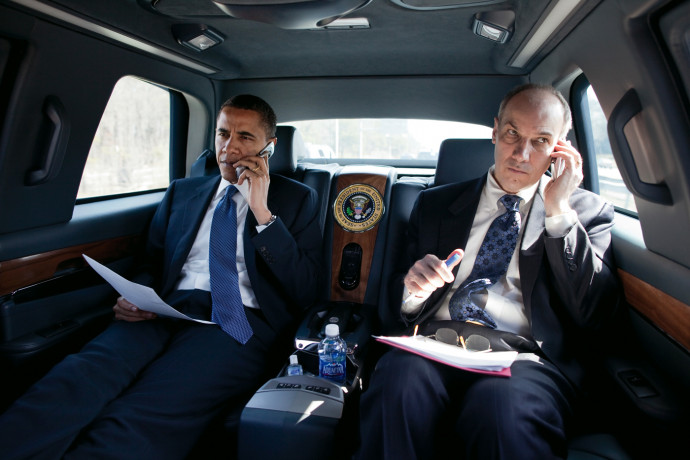
Phil Schiliro’s passion for protecting the environment dates back to when he was a teenager growing up in Long Island, New York. As a high school senior in 1974, he discovered that a local business was polluting a reservoir near his neighborhood. The young Schiliro united his environmental studies classmates, community residents, and local media in a grassroots movement that succeeded in stopping the contamination.
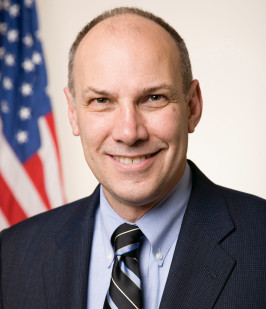
Continued interest in environmental law drew the Hofstra University graduate to Lewis & Clark Law School. Schiliro says the time he spent in the internationally renowned program was invaluable, both personally and professionally.
“It was terrific. The professors were first rate and I made lifelong friends with other students,” he says. “And Law Review”—he was editor—“was an extraordinary experience.”
Schiliro moved to Washington, D.C., in 1981. He worked on the Clean Air Act for U.S. Representative Tim Wirth during the 1982 reauthorization fight. From 1983 to 2004, Schiliro served as legislative director and then chief of staff for U.S. Representative Henry Waxman, who at the time chaired the House Energy and Commerce Subcommittee on Health and the Environment. The subcommittee’s jurisdiction included the Clean Air Act, the Safe Drinking Water Act, pesticide laws, and global warming legislation. From 1997 to 2004, Schiliro also was the Democratic chief of staff for the House Committee on Oversight and Government Reform.
Schiliro joined Senate Minority Leader Tom Daschle in 2004 as staff director of the Senate Democratic Leadership Committees and served as the minority leader’s policy director. The following year, he returned to Waxman’s office as chief of staff and to his position as chief of staff for the House Oversight Committee.
In 2008, Schiliro joined Barack Obama’s presidential campaign as director of the Washington, D.C., office. Following the election, he served as director of the Congressional Liaison Office for President Obama’s transition team before being named as an assistant to the president and director of legislative affairs for the White House. Earlier this year, Schiliro moved from the Office of Legislative Affairs to a new position as a special advisor to the president.
Schiliro is markedly understated about the impact of his work on Capitol Hill. Plenty of others have been vocal about it, though. A recent profile by The Washington Post noted that Schiliro was director of legislative affairs during the time Congress passed the $787 billion economic stimulus package, as well as health care and financial regulatory reforms.
The Post profile also lauded Schiliro for his role in an investigation of Haliburton that determined the company had overcharged taxpayers for its work as a Department of Defense subcontractor. Among the 2,000 reports filed during Schiliro’s work with the House Oversight Committee, another investigation dug into Blackwater USA’s involvement in the fatal shootings of Iraqi civilians.
[He’s] as valuable a member of our team as any. He’s extremely knowledgeable about the legislative process, as calm and steady under pressure as anyone I’ve ever seen.
President Barack Obama
Waxman has credited Schiliro with helping pass the 1990 Clean Air Act as well as increasing public awareness of toxic air pollutants and other contaminants. Schiliro worked toward the 1986 and 1996 Safe Drinking Water Act reauthorizations, overhauling pesticides law in the Food Quality Protection Act of 1996, creating the Long Island Breast Cancer Study Project, and investigating the tobacco industry (including the landmark 1994 hearing with the industry’s CEOs).
Along with environmental protections, the use of steroids in Major League Baseball was an issue of personal concern to Schiliro. A longtime fan of the game, Schiliro played a key role in the highly visible congressional hearings that brought the problem—especially its impact on teenage athletes —to light. Waxman noted that Schiliro’s commitment to the issue helped focus attention on the use of steroids in all sports.
When President Obama selected Schiliro as his legislative affairs director, Waxman noted that the president was fortunate to have such a valuable member on his team. “[Schiliro] understands the Congress and the legislative process probably better than anyone else around,” Waxman told the Post. “He’s calm and rational and has a very good perspective on how to get things done.”
Obama, quoted by Politico in 2009 regarding Schiliro’s efforts to get the stimulus package approved, echoed Waxman’s admiration.
“Phil had as much to do as anyone in getting this highly significant piece of legislation through Congress and I will rely on him heavily in the months to come,” the president said. “[He’s] as valuable a member of our team as any. He’s extremely knowledgeable about the legislative process, as calm and steady under pressure as anyone I’ve ever seen.”
As this story was being written, Obama and Schiliro were working to pass the president’s climate change bill.
Schiliro and his wife, Jody, a documentary filmmaker, have a daughter. He prefers to remain a private figure on a very public stage. While his high-profile work comes with its share of challenges, he says that after three decades of working in politics he still appreciates the chance to help make a difference.
“The opportunity to be part of a team working on issues of national importance is very rewarding. From my years at Lewis & Clark to today, I’ve seen time and again how the government can be a powerful force of good in our country.”
Dana Campbell ’88
A Portland native, Dana Campbell earned a journalism degree at Oregon State University. She worked as a writer and copy editor for a couple of years before realizing she wanted to make things happen rather than simply report on them from the sidelines.
“I wanted to make a difference in the world, and I thought I could do that as a lawyer,” says Campbell, who was living and working in Eugene at the time.
Campbell applied to and was accepted by Lewis & Clark Law School, as well as the law schools at Willamette University and the University of Oregon. After some hard thinking, she decided to wait a year. Twelve months later, she was again accepted by all three schools—but this time, a devastating event made the choice for her.
“I found out that my mom was terminally ill with ALS (Lou Gehrig’s Disease) and needed me in Portland to help care for her,” Campbell says. Lewis & Clark it was.
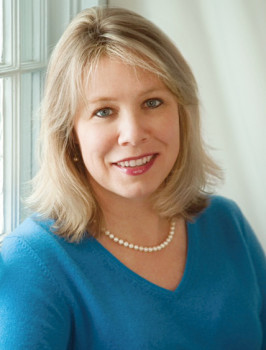
“The classes and homework were very hard, and I was exhausted juggling school, my work-study job, and taking care of my mom,” she recalls. “I remember falling asleep atop my books in the library more than once, but the friends I made the very first year got me through by sharing class notes and providing support, and they remain my friends today.”
Following graduation, Campbell worked as a deputy district attorney in Marion County. There, she prosecuted misdemeanors and carved a niche for herself by taking animal cruelty cases, which no one else wanted. It was her first experience with animal law. (Campbell was a student before the Law School established its Animal Law Program, now recognized as a global model.) The Humane Society of the Willamette Valley honored her for her commitment to protecting animals.
When her mother passed away, Campbell moved to Maui, Hawaii, to work as a deputy prosecutor specializing in felony cases. After nearly four years there, she and her husband, Alan Oratz, moved back to Portland. Campbell became in-house counsel for Rentrak, a distribution company for video rental stores.
In 1999, Campbell discovered the Animal Legal Defense Fund and immediately signed up as a pro bono attorney.
It turned out that the ALDF wanted to hire a former prosecutor experienced in animal cruelty cases, and they offered her a paid position as a staff attorney.
“The idea of doing legal work on behalf of animals was irresistible given my lifelong love of animals, and it seemed like an exciting, cutting-edge practice specialty,” she says.
Campbell worked at the ALDF for nearly 12 years. In the early 2000s, she returned to the Law School to teach animal law as an adjunct professor. She also served as an instructor for Cornell Law School in New York.
Her commitment to protecting animals has now carried Campbell halfway around the globe. Last January, she moved to Sidney, Australia, to serve as chief executive officer of Voiceless, one of Australia’s leading animal protection organizations. She says her duties are wide ranging and include managing staff, making sure projects progress on schedule, fundraising, overseeing the organization’s strategic planning, and serving as the primary media contact. Campbell also meets with corporate heads to ensure they incorporate animal protection measures into their corporate social responsibility and sustainability initiatives, a requirement for companies in Australia.
I wanted to make a difference in the world, and I thought I could do that as a lawyer.
While Campbell doesn’t practice law in Australia, she does work with Voiceless’ legal counsel and with outside counsel to determine what legal and legislative work the organization will take on and how best to grow animal law as the “next great social justice movement” there.
Campbell notes that when she first started in her field of practice, many people —particularly other lawyers—would snicker, make jokes, or look confused when she mentioned that she was an animal lawyer. That happens less frequently now that animal law has become an established course of study in well over half of U.S. law schools, and many states have animal law committees within their bar associations.
Current challenges, says Campbell, include helping people understand that it’s okay to work on improving the lives of people and animals—it’s not an either/or proposition.
A key focus for Voiceless is getting the word out to the public, lawmakers, and the media about the large-scale cruelty involved in factory farming. Campbell and her colleagues are also working to stop the largest land-based wildlife slaughter in the world: the commercial cull of kangaroos, which results in the deaths of millions of adults and their young. The number of kangaroos killed in Australia dwarfs the number of seals killed in Canada, she says, yet almost no one outside of Australia is aware of it.
Campbell, who has a 9-year-old son, says that while there are plenty of challenges involved in her work, the rewards far outweigh the difficulties.
“I know that my work is making a difference in the world, and making a difference for animals. There’s nothing better than that.”
More Advocate Magazine Stories
email jasbury@lclark.edu
voice 503-768-6605
Judy Asbury, Assistant Dean, Communications and External Relations
Advocate Magazine
Lewis & Clark Law School
10101 S. Terwilliger Boulevard MSC 51
Portland OR 97219
